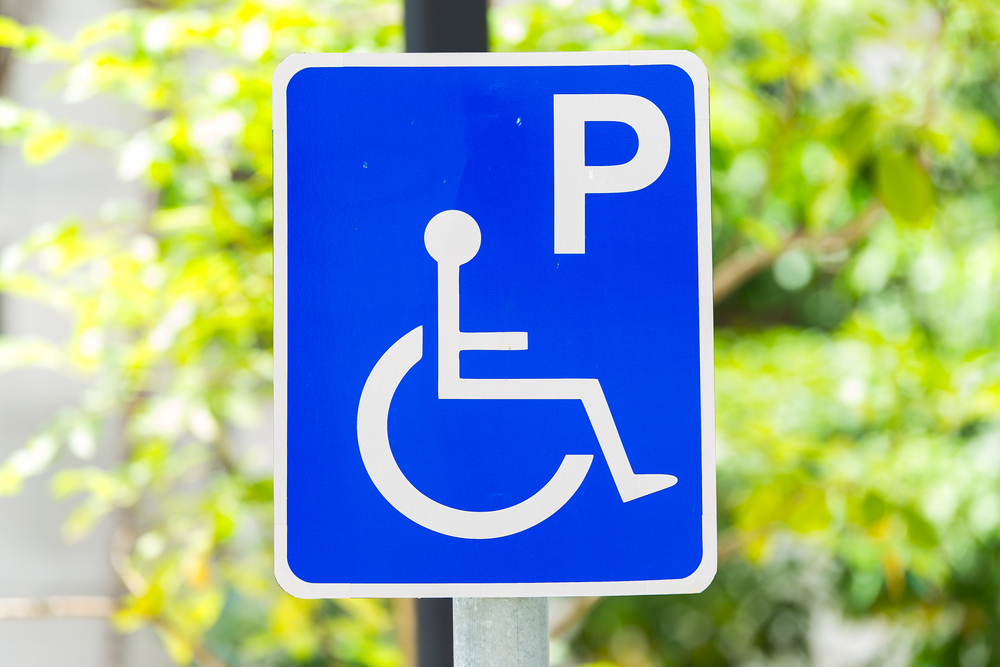Removing Barriers to Accessibility Requires Planning, Persistence
Written by |

Lost in the delights of the library; 10 minutes over meter limit
Yes, they chalk-marked the tires and I got a ticket. I was furious. Once again, the two lousy dedicated accessible street parking spots had been occupied in front of the library.
Parking policies vary and some meters have exceptions for people with disabilities. I have MS brain and I get mixed up. I don’t bother to go over and read the fine print on the meter since I know I don’t have to put any coins in. At least free parking is a benefit for street disability parking. Here, 30-minute meters do say NO EXCEPTIONS. This limit includes people with disabilities. I did not know these things when I got the ticket. I fought the ticket and won because the the DEDICATED accessible parking is inadequate.
Finding dedicated accessible city street parking is a constant problem. Two tickets in four months. Both dismissed, but it took a lot of effort.
I routinely shuffle multiple books, around depending on mood or due date. I go to the library at least once a week, often with five to 20 books to return, plus five-10 to pick up. If the street parking is taken l have to walk to and from the parking garage. If I have too many books to carry, before I park I use the drive-up book return. We have a very high-demand library. The two dedicated street spots in front of the library, and the three “anyone for 30 minutes ONLY” spots, are almost always occupied.
Who decides if and where dedicated accessible parking must be?
No one I have contacted seems to be the one who can mandate the change of the 30-minute spots to dedicated accessible parking. Recently I spoke to many people at a public meeting on city redevelopment plans for transit and parking. Not a single poster board mentioned transportation and transit for people with disabilities as an issue.
Not a single person with a physically disability works for the consulting firm on the massive redevelopment plan. The city doesn’t employ anyone with disabilities or have a staff member, much less a department, to cover disability issues. It does not even have a citizen advisory board on disabilities. I will carry on the fight.
I am a disability activist
Instead of just accepting the status quo, consider becoming a disability activist. Even in a small matter, this is where your voice can make a difference. Contact your city council when you discover a problem. Don’t be shy; be firm and persistent.
Most people are familiar with the Americans with Disabilities Act (ADA) and are sensitive to the needs of people with disabilities. The ADA requires that architectural and transportation barriers be addressed. If you have an issue, other people, even someone without a disability, may have that issue, too.
Make change happen by recognizing big and little barriers, make a list, look for alternatives, and figure out how to make that change happen.
Note: Multiple Sclerosis News Today is strictly a news and information website about the disease. It does not provide medical advice, diagnosis, or treatment. This content is not intended to be a substitute for professional medical advice, diagnosis, or treatment. Always seek the advice of your physician or other qualified health provider with any questions you may have regarding a medical condition. Never disregard professional medical advice or delay in seeking it because of something you have read on this website. The opinions expressed in this column are not those of Multiple Sclerosis News Today, or its parent company, Bionews Services, and are intended to spark discussion about issues pertaining to multiple sclerosis.




Nigel
Congratulations on your fight to get your ticket withdrawn